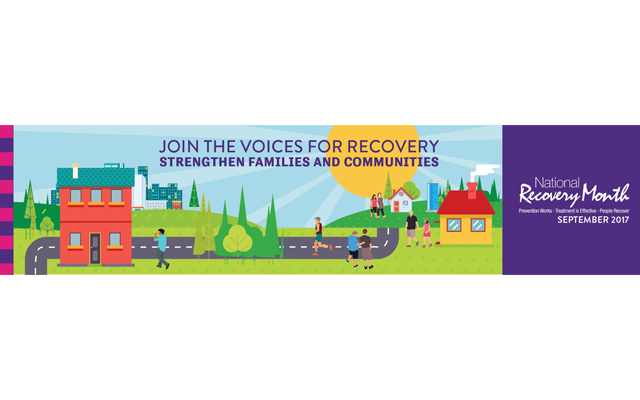EDITOR’S NOTE: September is National Recovery Month. Sponsored by the federal Substance Abuse and Mental Health Services Administration, the month is aimed at increasing awareness and understanding of substance use disorders and to celebrate the people who recover. The following was submitted on behalf of Link for Hope and Recovery Aroostook by a mother from Aroostook County. The names have been changed to protect identities.
I would like to share my experience of how my life changed because I love an addicted person. Please allow me to tell you about my daughter, Melissa.
Melissa was the second of three children; beautiful, strong-willed, full of adventure and energy, always pushing the envelope and fighting for the underdog. She had a strong traditional family and was surrounded with love from not only her parents but also her aunts, uncles, and grandparents. Her blue eyes were full of life and although she was not the exceptional student that her siblings were, she had a charm that won the hearts of most of her teachers and her classmates. By the time she was in high school, she had already been chosen as “queen” of her school, was co-captain of her basketball team and a class officer. Clearly she could have chosen any peer group she desired and would have been accepted, but in the years that followed, her desire to use (which later became her addiction) made her choose the groups that were using. I still remember the pain in the eyes of one of her non-using friends when she left our home; she was heartsick and disappointed, confused and bewildered, as was her family.
I know very little about Melissa’s alcohol and other drug use, because she was a very good liar and manipulator. What I learned years later was that her first taste of alcohol was at the house of one of her friend’s when she spent the night and the girls got into the parent’s liquor cabinet. She was in the seventh grade. That was also the year she used marijuana for the first time. By the time she was a junior in high school, she had quit all her sports activity and that spring she left home. I must say, that was the most devastating time in my life. I had no idea where she was, who she was living with or if she was safe.
When I finally found her, I became this person I didn’t know anymore. I begged, pleaded, used manipulation, made promises, anything to get her to come back home. Nothing worked. She wanted to live her life the way she wanted and didn’t want any of our restrictions anymore. She walked away from everyone she had ever loved and the dream of working in the family business – so she could use. That alone speaks volumes as to the power of addiction.
Night after night, I found myself in my husband’s arms crying myself to sleep. Neither of us knew what to do. I could barely function. I did only what I had to do because I had no energy to do any more. I went to work, came home and wrapped myself in a blanket and cried. My co-workers were concerned for my emotional state, as was my family. Finally my boss, a recovering individual, strongly suggested I attend a 12-step program for family and friends of addicted people. My first thought was, “There is nothing wrong with me. If she would just get some help, I’d be fine.” But there was no way she was willing to get help, and I was far from fine. I finally went to a meeting. I remember that first meeting like it was yesterday. I cried for the whole hour I was there, but I felt such warmth, acceptance and understanding. I took home a bunch of literature about addiction and went back the next week, and the next and the next. Finally I was able to separate the disease from the person. was able to “let go and let God.” I began to feel like a person again.
I must admit it hasn’t always been easy. I’ve had many slips where I’d tried to manipulate a situation regarding Melissa as to the way I think it should be, but then I remember, “let go and let God.” By letting go, I have had to watch my beautiful, full of life child go through some extremely painful experiences, albeit self-inflicted. She has spent time in jail, not a pleasant experience, to say the least. She currently is not exactly where she thought she would be at this time in her life, but she is functioning as best she is capable of as a wife and mother. I have learned to let her live her life, to experience successes and failures — to let go and let God. Because in the end, when I step in and attempt to control outcomes, God isn’t able to do the work He desires to do in her life.
I share this painful experience with you because I am hoping people who are faced with the addiction of a loved one will reach out to a support group in your area. Please don’t have the attitude that I did, “it’s” the loved ones problem, because we get as sick as they do with this complicated disease. You are not alone. In our small rural town in Maine, we have several 12-step programs along with a faith based recovery support program. If we have them, I’m sure your area does too. You can call 1-800-498-1844 to find an Al-Anon group in your area. Don’t hesitate to seek the help you need. Remember, untreated addiction is a progressive, terminal disease. Your loved one’s behavior is affected by this disease. We need to get healthy ourselves and perhaps in the process, they will also get healthy also.








